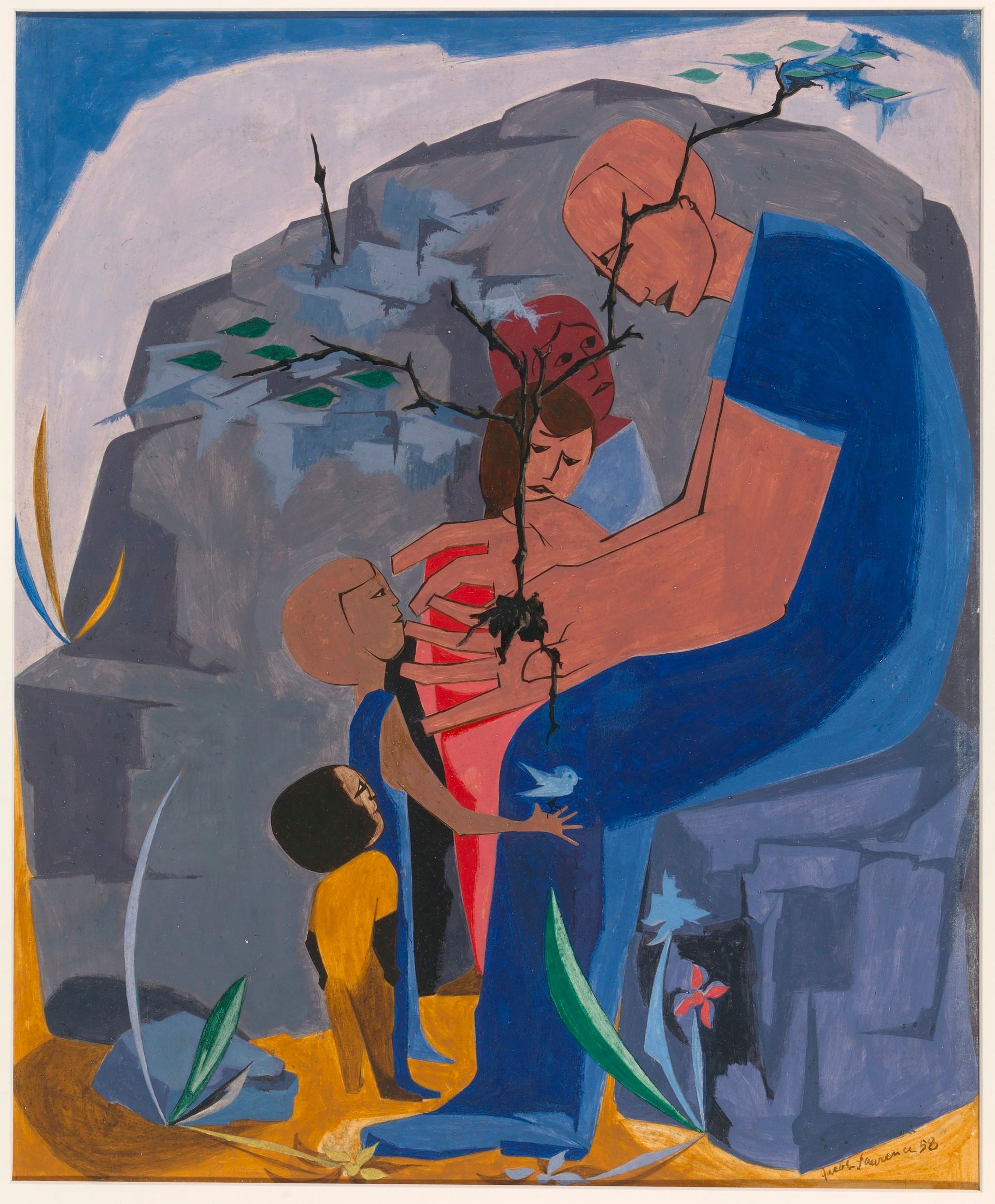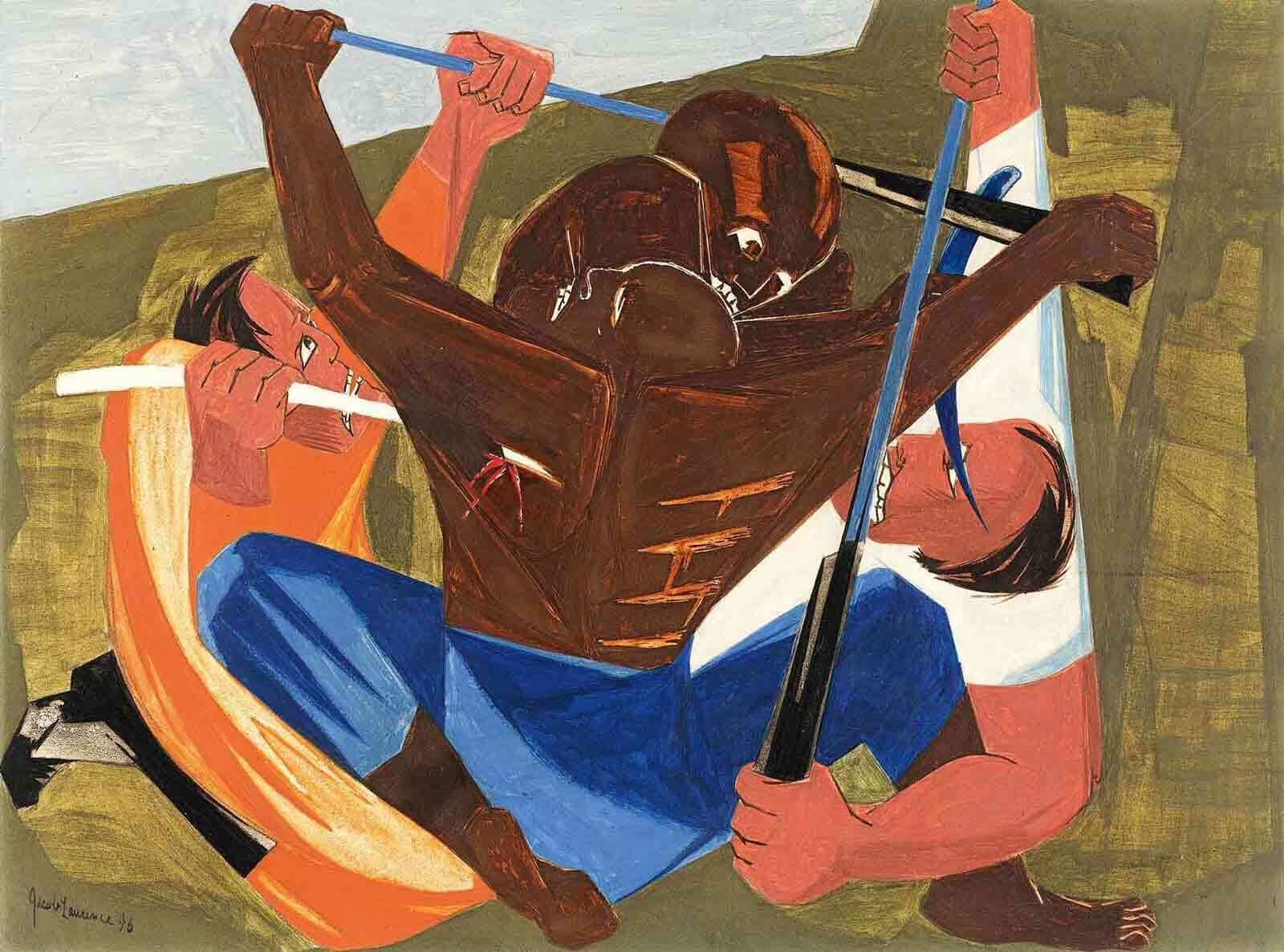- Meant For you
- Posts
- My Fellow Americans
My Fellow Americans
One way I understand my mother better now than I did when I was younger is in her refusal to engage in historical exceptionalism. Phenomena that were new to me as a child—institutionalized injustice; the unaccountability of public officials; war that proceeds despite open, vehement dissent of the people—were familiar to her, so while they struck me as ghastly emergencies, she didn’t, from what I could tell, experience them as such. This isn’t to say she was inured to them as wrongs but rather that they were the warp and weft in a broad swath of evil. They were not eruptions of the anomalous. They were business as usual.
There is almost no current headline, no matter how specific its sadism, that fails to remind me of a prior. When Jordin Castillo was left outside Alligator Alcatraz to burn in the sun as punishment for a hunger strike, I thought of Marcia Powell, the impoverished, mentally disabled woman cooked to death in an Arizonan cage in 2009. Reports of ICE-abducted prisoners forced to eat off the floor “like dogs” brought to mind the 2004 photo of Lynndie England holding a man’s leash in Abu Ghraib. Adriana Smith, for me, exists on a continuum with Terri Schiavo. Daniel Berrigan’s writing from the early 70s about his fellow inmates coerced into war-related labor makes me think of how our prisoners are still made to manufacture materials for war, and those in concentration camps forced to work on Nazi weapons, and so on.
My references are idiosyncratic, not arrived at academically, but I think their cumulative implication is sound. Nothing happens without precedent, predecessor, supportive circumstances. Everything is consequence and connection. On social media, I have seen an aversion to foregrounding the temporal scaffolding of today’s horrors. There are some people (well-meaning, passionate) who insist that certain facets of American life at present—the domestic operations of cops and the military and cops-by-every-other name; or the trampling of a particular civil liberty, or the mechanism of its trampling—are unlike American life at any other time. The exceptionalizers are hostile to contextualizers, the ones who add, “actually, the FBI has extensively surveilled citizens’ protected speech...” because they worry that a long-view response encourages complacency and downplays escalation of state repression.
Parsing how and why this moment is not like moments before is part of historicizing, not an impediment to it. Distinctions should be made, recorded, and reckoned with. But the American mind craves amnesia and ignorance because our past is unholy, sick beyond fathoming, a dizzying spiral of turning points where every turn has taken us further into depravity, and we receive ample miseducation to that end. I’m suspicious of the tendency to speak in ahistorical extremes, to focus on a single tangle at the exclusion of the net of knots, because of our lifetimes’ worth of encouragement to disregard the past at all costs—and it does cost us to do so, dearly.

“‘Men exist for the sake of one another. Teach them then or bear with them.’ — Marcus Aurelius Antoninus, Meditations, VIII:59. From the series Great Ideas of Western Man.”
by Jacob Lawrence, 1958
I assume the compulsion to identify certain ICE targets as “legal” or “citizen”; to make a point of calling attention to these people’s innocence and willingness to adhere to the system’s protocol; to cite the Constitution or a politician’s lies about why they do what they do; comes from the hope of highlighting that safeguards do not function as they purport to and that ICE agents, this president, this judiciary and Congress are “lawless” and dishonest and therefore no one is safe. To some people, these enduring truths are news. They must speak the knowledge to themselves and others. But it disturbs me when manifestly decent adults parrot the state’s mandated credulity about laws, courts, and the state itself. Everyone using citizenship or innocence as a ward against mistreatment, I think to myself, has not learned one thing about American prisons or policing—not learned one thing about America. There’s no staking a fence in the lava of white supremacy, imperialism, capitalism. I wish it were not possible for anyone grown and living in the United States to maintain such a degree of apparent naivety about what this country is willing to do to any person, at any time, anywhere on the planet, if it serves the twin Gods of enrichment and domination.
And I wish it were not so easy to conflate outrage and impact, as if outrage were an action when it’s not even a durable resource. Disturbed Americans’ public communications right now (comments, protest signs, posts, Tiktoks) regularly hinge on convincing an audience to feel a certain way rather than do a certain thing. I have been guilty of fixating on this myself, so I’m familiar with the origin of the misguided impulse. When you experience 1) friends, peers, or really anyone overtly refusing all ethical and moral considerations in favor of self-interest or their own hatreds and bigotries, and 2) your own inability to effect change at a larger level, a propulsive mix of confusion and betrayal can take over. It is tempting to believe that fixing the first will address the second, but that is a grave misdiagnosis.
We tilt at windmills when we act as if longstanding political failures are grounded in a lack of emotion. Most people, including most Americans, possess an instinctive affinity for life and for one another, and have the capacity for basic decency. For all of my adult life, I have seen polls indicating broad support for gun control and legal abortion. I vividly recall that the invasion of Iraq and its justifications were a pathetic farce from the start and that millions decried it and were not lobotomized into jingoism by 9/11 and The New York Times. You will not convince me that most Americans desire that hospitals be bombed or infants starved to death, or that they want children shot by snipers or cops or anyone with a gun, a grudge, and access to a school. Nor can I believe a majority of Americans think society thrives when individuals can be beaten, kidnapped, deported, and killed by men without faces or names.
Of course there are people enacting and cheering the cruelest crimes imaginable. There has never been a time in human history when that hasn’t been so. And we, Americans, are aggressively indoctrinated into the cult of cop and country worship, so much so that people will irrationally cling to every lie they’ve ever been told in the face of ample evidence to the contrary. And yet, we live in a country that criminalizes feeding people and speaking out about genocide because people are so habitually called to do these things that the only hope of stopping them is punishment. Where Democrats must throw their party’s full weight behind crushing candidates with an even remotely humane policy platform because the spectral invocation of a life where people are cared for is too galvanizing to successfully run against.
Subconsciously or consciously, I think those of us in anguish over our country’s condition are well aware of how much company we keep. We know that our fellow Americans care about each other and that they hate what’s happening to their neighbors, to people in other states, to Palestinians. But feeling is not power, and a large part of our stymying pain is the knowledge that powerlessness persists despite our mass. “People know that collective action is the only way forward, but we’re in a time when some people feel/are alone and also lack trust in others,” writes Mariame Kaba. “Yet as humans, we crave connection. All of this is a recipe for resignation and also sometimes for impotent rage.”

“. . . for freedom we want and will have, for we have served this cruel land long enuff . . .
—a Georgia slave, 1810” by Jacob Lawrence, 1956
“Most people, I judge, are simply appalled by the course of recent events, from Kent through Cambodia and the South,” wrote Daniel Berrigan half a century ago. But for most of these people:
today’s appall is tomorrow’s cold omelet… It is not, I judge, that people do not react in human fashion to such crimes, indeed they often over-react. But their reactions are quickly consumed in the hearth of “normal living.” After a while, warming their hands at that fire, they catch themselves wondering why, yesterday (last month, last year) things were better.… Even the most acute moral sense, operating in a void, is simply useless. (emphasis added)
I’m struck by his stipulation of over-reaction as part of this cycle, like the feedback loop of a dysregulated nervous system. The aforementioned tenacious naivety seems to yield only panic and crash, then a shot of adrenaline with every new discovery and the mania and panic and crash all over again. If sensitivity overrides the intercession of discernment, it can produce nothing but hysteria and paralysis. “Indignation, anger, outrage are useful when they become the cool and tempered tools of social change,’” Berrigan wrote. “But when emotional response drifts about, unanchored to purpose and courage, free-floating and self-indulgent, I am not at all sure that ‘virtue’ does not beget more crime.”
There is too much primacy placed on feelings and beliefs. Beliefs, however sincerely held, often don’t matter because they don’t result in any action. We move along habitual paths, keeping to the grooves of culture and class. How many people involved in private jets—the pilots, staff, owners, customers, makers—”believe in” climate change, do you think? A lot of them, I bet. How many people who eat meat every day “believe in” it? I’ve never doubted that climate change is real and terrifying but there was an extended period of time when I took multiple commercial flights a week, every week. I flew cross-country dozens of times each year, crossed the Atlantic as casually as people drive to the beach.
We wait for someone else to activate us on behalf of our own beliefs. Can we admit it? It’s easier to imagine that if we converted the holdouts (the diehard Trumpists, the climate denialists, the apathetic narcissists) we’d somehow reach the tipping point of new grooves and habits that we could enter into without fear. This way, other people are our problem, not our own reticence. But collective liberation happens intentionally or not at all.
We already have each other. The real question is, what do we do with ourselves?